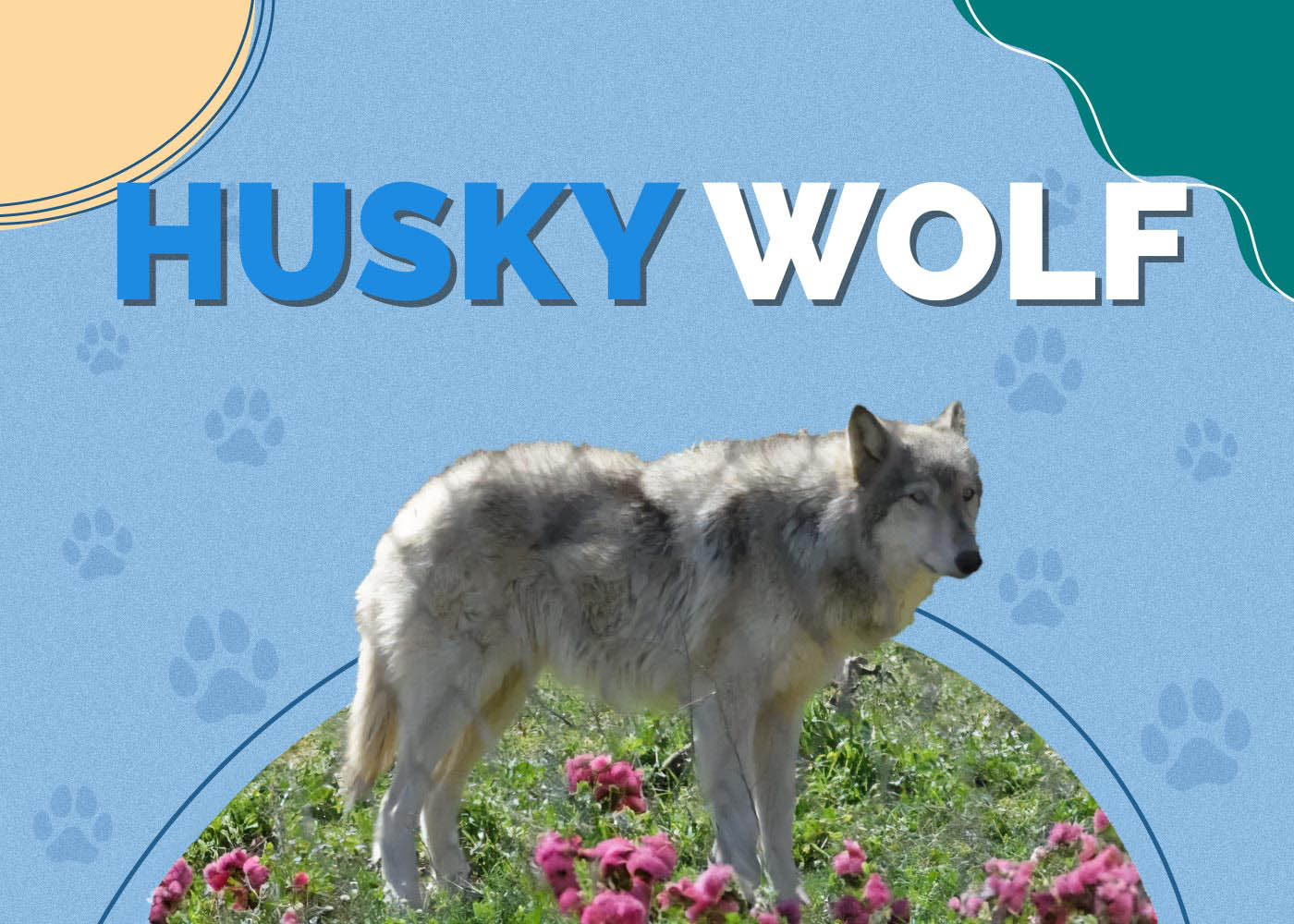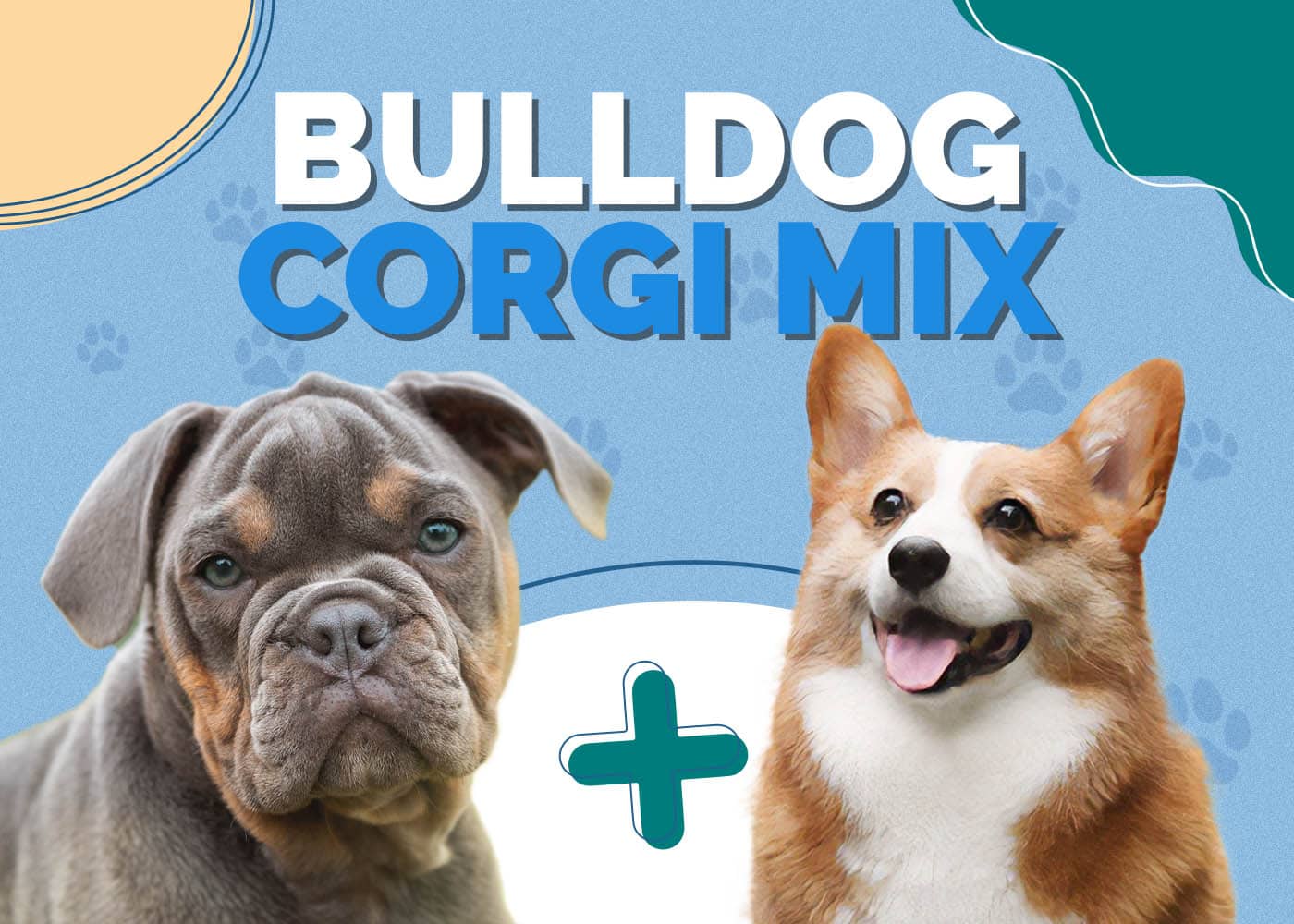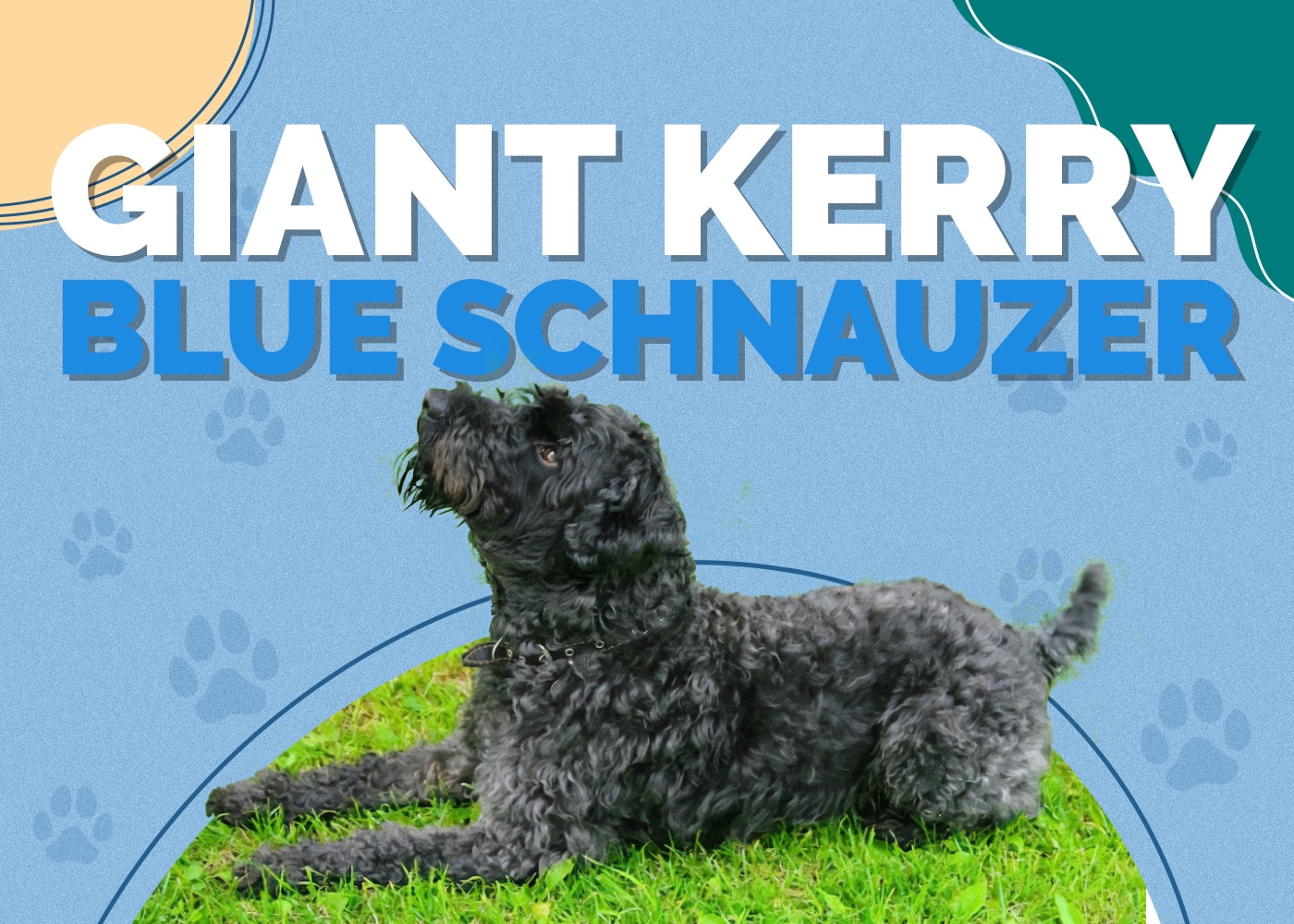Husky Wolf Mix: Info, Pictures, Characteristics & Facts

Updated on

Height:
25–32 inches
Weight:
75–150 pounds
Lifespan:
12–15 years
Colors:
Black-gray, gray-white, white, gray, tan, or a combination of these colors
Suitable for:
Highly active people who love spending time outdoors; they are not suitable for families with children or for first-time dog owners.
Temperament:
Intelligent and aloof, wary of strangers, often more interested in other dogs than spending time with their human family.
The Husky Wolf Mix, also known as a wolf-dog, is a hybrid mix of the Siberian Husky and one of several different wolf species. The trend of owning mixed wolf breed dogs started in the 1950s and has grown significantly in popularity in recent years, thanks largely to the “Game of Thrones” (“GOT”) television series and the desire of some fans of the show to own their own “GOT” inspired “Direwolf.”
While exceptionally beautiful in appearance and popular among “GOT” fans, Husky Wolf Mix dogs are not easy to own and tend to be extremely challenging to raise. For this reason, many mixed wolf-dogs are abandoned when their owners realize that they simply can’t look after their wild pets and abandon them.
The breed requires an extremely dedicated owner who has a significant amount of time to spend exercising their pet and is prepared to put in a great deal of work to socialize and train them. The Husky Wolf Mix is not a dog for everybody and is not at all suited to a first-time dog owner.
Husky Wolf Mix Puppies
Before considering buying or adopting a Husky Wolf Mix dog, it is imperative that you check the legal requirements of your country and state. In the United States, as in most countries, it is illegal to own a purebred wolf, and while mix-breed dogs may not face the same prohibition, there will likely be some form of bureaucratic process to go through before you can legally own one.
While it is often said that all dogs originally descended from wolves, in the case of most domesticated breeds, there have been hundreds, if not thousands, of years of breeding since they were truly wild dogs. This is not the case with Husky Wolf Mix dogs, which are often up to 75% wolf. As a result, the breed often still has the personality and temperament of a wild wolf. Even with extensive socialization from a young age, their wild nature can be extremely difficult to handle, and they can be aggressive with strangers and quite aloof toward their human family.
3 Little-Known Facts About the Husky Wolf Mix
1. Wolf puppies look and act like domesticated dogs, but as they get older, their true temperament comes out.
One of the main reasons that so many Husky Wolf Mix dogs are euthanized, abandoned, handed into shelters, and even sold for their fur is that people are attracted to the idea of owning a wolf dog. When they see and meet the puppies, they are taken in by their charming looks and the fact they act just like domesticated dogs. They do not realize that their inner “wild” wolf doesn’t develop until the pup becomes an adolescent. Then as the dog matures, it becomes part wild, part domesticated, and can be extremely unpredictable and difficult to handle.
2. Many municipalities across the U.S. have started banning these dogs or requiring potential owners to obtain a permit.
To reduce the number of Husky Wolf Mix dogs (and other wolf mix breeds) that are abandoned and euthanized across the U.S. each year, many municipalities and some states have put in place bureaucratic hurdles that make it either illegal or difficult to own any wolf-dog mix.
It is hoped that through a permitting system, potential owners can be educated about the significant challenges associated with owning and raising these dogs, so informed decisions can be made before anybody commits to buying one of these dogs.
3. The Husky Wolf Mix is not new
It is thought that wild wolves have been mating with domesticated Huskies in Alaska for many years. However, the first known deliberate breeding occurred sometime in the 1950s, with these mixed-breed dogs originally being bred as guard dogs and for their fur. However, in more recent times, they have become desirable pets, and the number of breeders has grown significantly to meet the market demand for these dogs.

Temperament & Intelligence of the Husky Wolf Mix 🧠
Without question, the Husky Wolf Mix dog is an intelligent and beautiful-looking dog, and many people are attracted to the idea of owning one. However, it is essential to remember that even though they were bred in captivity, these dogs are wild animals. Far too many people are seduced by the breed’s looks and give no real consideration as to what it really takes to raise and own one of these dogs.
Of particular importance, you must remember that wolf puppies act like typical domestic puppies and will readily accept human company, happily spending their days inside with their new owners. However, when they reach adolescence, their wild wolf instincts will kick in, and as these dogs grow bigger and stronger, they will become difficult to handle. When this time comes, you will have no choice other than to start keeping your dog in a large outdoor enclosure, a situation that will likely cause significant confusion for a pet who is used to constant human company. Unfortunately, this confusion can cause these dogs to lash out violently, and you may have a situation where it is necessary to keep all people away from your dog.
As harsh as it sounds, the best way to avoid this problem is to recognize from the outset that these dogs are wild and to place your puppy in its large outdoor enclosure from the beginning. That way, the controlled human contact that they become accustomed to as a puppy will be the same as what they receive when they are older. Of course, this doesn’t mean that you can’t spend time playing with and socializing with your puppy, and in fact, this should occur regularly in the environment in which the puppy will live, not inside your house.
If you know that you don’t have space for an exceptionally large dog enclosure on your property, don’t buy a Husky Wolf Mix dog. You will end up having to give your dog away when it reaches adolescence, and this is simply not fair to the dog. Unfortunately, far too many people neglect to consider this, and an owner’s inability to adequately accommodate and care for their pet is a primary reason that so many of these dogs end up in shelters or being euthanized.
Are These Dogs Good for Families? 🏡
No, the Husky Wolf Mix dog is not suitable for families with children. While there are numerous testimonials online about these dogs and how well they get on with children, the temperament of any dog that has a high percentage of wolf in them is totally unpredictable. They are essentially wild dogs, and as such, they should not be left alone with or trusted around children of any age.
Does This Breed Get Along with Other Pets? 🐶 😽
The Husky Wolf Mix is a social breed, and they will do best when they have other canine companionship. Keep in mind, though, that they are also territorial dogs and may take a while to accept a new dog as a member of their pack. Still, the effort of introducing one or more other large dogs into your family will result in a more content and less problematic dog. In fact, in time, you will likely find that your Husky Wolf Mix dog will get on better with the other dogs in your family than with the human family members.
While having other dogs is a great choice, the same cannot be said about owning other small animals. Husky Wolf Mix dogs are not suitable for households that have other small animals as pets unless these animals can be kept far away from your dog. A Husky Wolf Mix dog will likely see these smaller pets as prey to be chased or hunted, not as valued family members.
Things to Know When Owning a Husky Wolf Mix
Food & Diet Requirements 🦴
While domesticated dogs will happily get by on commercial dog food, Husky Wolf Mix dogs, particularly those first and second-generation crosses with an extremely high percentage of wolf in their bloodline, will, according to Mission Wolf, benefit more from a diet that resembles what a wild wolf would eat.
In the wild, wolves get by with sporadic meals of elk, deer, bison, and other natural animals of prey. In captivity, wolf mix dogs, like the Husky Wolf Mix, will benefit from large servings of raw meat, and they simply don’t need the carbohydrates and preservatives found in most commercially manufactured dog foods. To keep them in top shape, additional vitamins and nutritional supplements can be added to their diet, and your vet will be best placed to advise in this regard.
In the wild, wolves will also eat fruits, so these can be added to your Husky Wolf’s diet to provide additional nutrients and variety.
A word of caution, though: If you have adopted a Husky Wolf from another owner or shelter, it is important to understand how the dog has previously been fed. A Husky Wolf that has been raised on commercial dog food will not do well if you suddenly switch them to a natural wolf-like diet. Any changes that you make to what your dog eats should occur slowly, to enable the dog to get used to the change, and it may also be a good idea to get advice from your vet.
Exercise 🐕
Both the Siberian Husky and the Wolf are extremely active animals that need extensive amounts of exercise to be happy and healthy, so it should come as no surprise that a Husky Wolf Mix dog will also require a large amount of daily exercise.
In fact, they will also need a great deal of space, which means that these are not dogs that should ever be kept in apartments or even in most suburban houses with average-sized backyards. The ideal location for these dogs is a large rural property that is away from busy and noisy roads, strange people, and other human development. Remember, they are essentially wild animals, and as much as you can, you should provide a natural environment for your pet to live in.
Wolf sanctuaries like Mission Wolf tend to recommend having at least one acre of enclosed space for a wolf-dog mix such as the Husky Wolf, with a further half an acre added for every additional dog that you own. So, as you can see, these dogs simply aren’t suitable pets for most people. In addition to having a large amount of space in which they can roam, these dogs will need a long walk or run every day. Again, a rural area with plenty of space and few people is ideal for this. However, even in such a setting, you should always keep your dog on a leash when they are outside their enclosure, as they can easily be distracted and may take off after any small animal that they see without giving any thought to you or any instruction that you might be trying to give them.
Training 🦮
Your Husky Wolf Mix dog must be introduced to as many people and other animals as possible from a young age. They are notoriously difficult dogs to adequately socialize. If you are to have any hope of your adult dog getting along with strange people and animals, they need to get tons of exposure to them while they are extremely young.
In terms of obedience training, this too will be a challenge and will require a great deal of dedication and patience if you are to have any chance of success. Although they are highly intelligent, Husky Wolf Mix dogs can be quite aloof and will have no desire to do something to please you. The only way to succeed is through constant repetition and making the training session fun, as these dogs will only do something when they see that there is some benefit for themselves.
Grooming ✂️
These dogs require only minimal grooming for most of the year. They do have thick double coats that shed all the time, but except for when they blow their coat once or twice a year, they don’t need much brushing. However, you may want to introduce a regular brushing routine while your dog is young; unless they get used to the process, you will have considerable difficulty controlling them long enough to brush them when they are a large and exceptionally strong adult dog.
Health and Conditions ❤️
Husky Wolf Mix dogs are generally quite healthy dogs, but they are susceptible to many of the same health conditions as other large dog breeds. The following is a list of health conditions that they may face.
- Skin disorders related to zinc deficiency
- Eye infections
- Ear infections
- Hip Dysplasia
- Progressive renal atrophy
- Cataracts
- Corneal disorders
- Thyroid deficiency
Male vs Female
When it comes to choosing a puppy, unless you have a particular preference or you plan on breeding from your dog, making your decision based on sex is not generally considered the best method of selecting the most suitable pup. A far better method is to consider the personality of the pups that are available and find one that best suits the type of dog that you are after.
However, with any hybrid wolf-dog, including the Husky Wolf Mix dog, there are a few wolf-related traits that vary between the sexes that may be worth considering.
Female wolf dogs tend to display more dominance within groups, including human family groups, than males, and this is consistent with wild wolf behavior, in which females are always the pack leaders. It is also the females that will be more accepting of human attention, whereas males tend to be considerably more aloof. You will also likely find that in a one-on-one situation, a strong male dog will be more likely to physically challenge you for dominance than a female. In some dogs, this can lead to unwanted aggressive behavior.
Final Thoughts
The Husky Wolf Mix is an incredibly beautiful dog, but not one that is suitable for most people. They need an experienced owner who has a large property with plenty of open space. The breed is notoriously unpredictable and difficult to raise and train, and for this reason, they are not a dog that should be purchased by first-time dog owners.
Although immensely popular, this breed is highly misunderstood, with many people buying a Husky Wolf Mix dog each year without any understanding of the breed or the challenges of owning one.
Featured Image Credit: Llop, an arctic wolf x Alaskan malamute hybrid in Lobo Park, Antequerra, Spain, Mariomassone, Wikimedia CC 3.0












